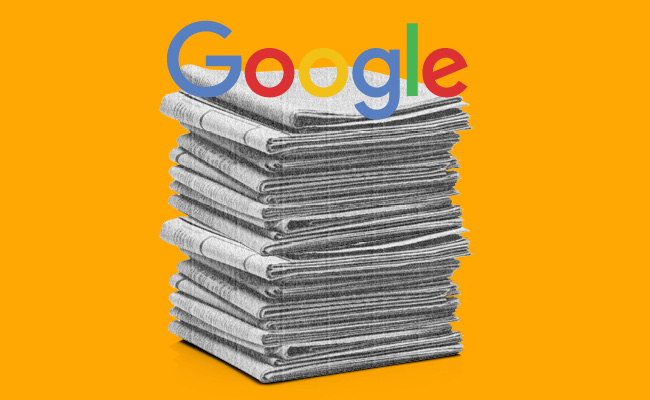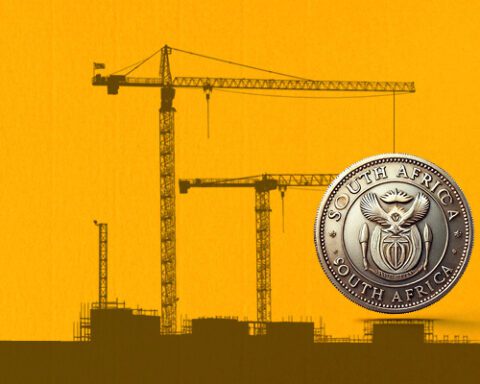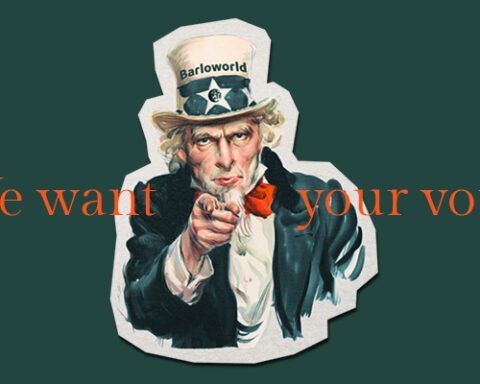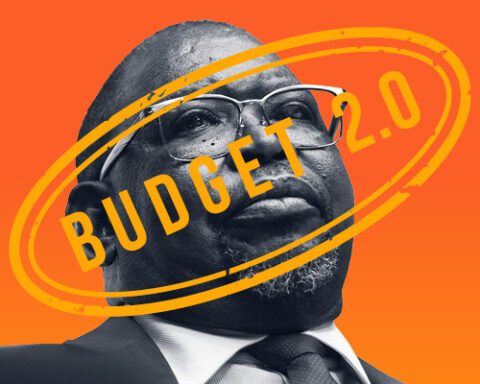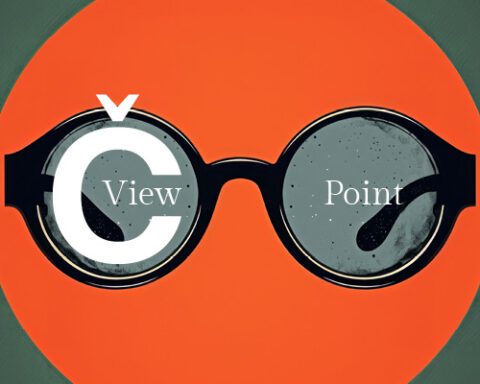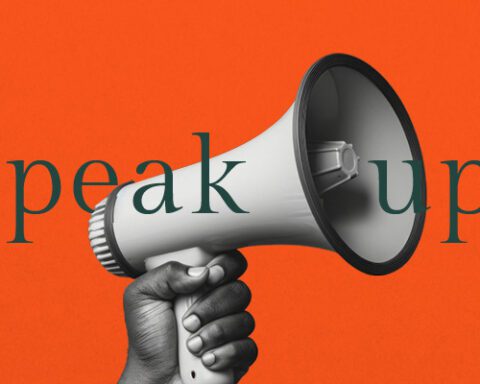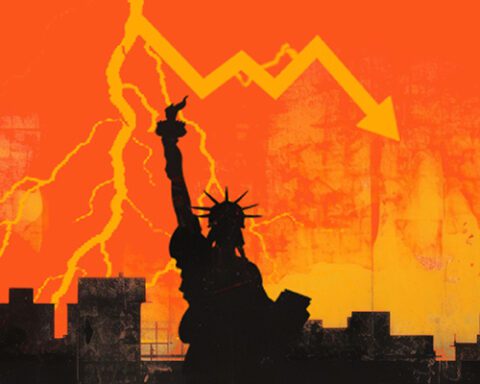The Competition Commission recently published its provisional Media and Digital Platforms Market Inquiry, which absolutely delighted the ailing media business in South Africa. That’s because it proposed that Google’s parent company, Alphabet, pay between R300m and R500m directly to the media every year for the next three years.
Over a long career in journalism in South Africa, I have participated in its precipitous decline. As an editor, I have been responsible for implementing one of the countless retrenchment exercises over the past two decades. I have even, recently, been a victim of a retrenchment exercise. The process has been brutally painful on all counts. So, in principle, nothing thrills me more than the notion of a big dollop of cash being dumped on the industry by a very successful American global company.
So what I’m going to say now is going to make me very unpopular in the industry I love and to which I have devoted my working life: I think this report is a duplicitous falsification of the real reasons for the media’s decline and consequently its remedies are both egregiously overstated, misdirected, and verge on extortionate. It’s not entirely wrong, but it’s pretty bad.
I’d better say at this point that I haven’t been “briefed” by Google; I’m not on Google’s side; I’ve written critically about Google’s tax policy previously; I don’t even know who runs Google in South Africa, though I could, of course, google it. (Little joke there.)
As a participant in this ailing industry, I love the idea of it getting a fabulous boost. But as a journalist, I’m duty-bound to report that I think the commission’s findings form part of a larger tendency within the competition authorities to wildly exceed the bounds of competition law and act as a kind of social justice warrior. The commission will argue that this is explicitly within its mandate; I would argue that doing so may be notionally desirable, but in this case in particular, the commission has overstepped the mark even by these standards.
How do I get to that conclusion? It’s complicated, so hold on because this is going to go on a bit. But it comes down to this: to what extent is Google specifically – as opposed to the digitalisation of information on the internet in general – responsible for the decline in the local news media?
Value destruction
The argument of the commission runs like this: “Google’s monopoly position and the unequal bargaining position of the media means there has not been an equitable share of value between Google and news publishers in South Africa, both historically and currently. This inequity has materially contributed to the erosion of the media in South Africa over the past 14 years and will continue to do so unless remedied.
“The inquiry has used a variety of measures to determine the additional value extracted by Google search annually from publishers, or value destroyed through conduct that promotes zero-clicks, resulting in a range of estimates from R300m to R500m for 2023.
“The Google algorithm distorts competition between news media organisations insofar as it, a) over-represents global news media in South Africa for search and Top Stories, b) under-represents vernacular and community media, and c) over-represents subscription publishers.”
So, as far as the commission is concerned, Google bears primary responsibility for the media’s decline. But sadly, it’s just not that simple. It differs, of course, between media formats, but if you just consider the main losers here, newspapers and magazines, I would put it differently.
Newspapers make their money from advertising and unit sales. Over a much longer period than 14 years, the internet opened opportunities for advertisers on a much, much wider and cheaper basis. Newspapers for years benefited from, as it happens, their own quasi-monopoly position and were able to push advertisers into their own narrower funnel.
And so, the Sunday Times, for example, was able to charge R500,000 to banks and cellphone companies for a single page of advertising that nobody really looked at, and corporates paid. As the internet got more popular, the banks and cellphone companies (among many others) asked the very pertinent questions: how many people are we actually reaching here (unclear) and can’t we reach them more cheaply with gazillions of digital ads that cost almost nothing (yes!).
Simultaneously, the internet provided a faster, more efficient and easier-to-access method of classified advertising. For decades, if you wanted a place to sell your unused camera, rent a room, or buy a guitar, you bought The Star and scrounged through the classifieds. When I joined that paper way back when, there was an entire floor of people answering phones and taking classified ads. The internet alternative was so efficient that providers didn’t even charge for the service; that’s what the internet does for us.
The problem was compounded by the fact that physical circulation of newspapers was gradually declining too, decreasing sales revenue because it’s actually easier and more effective to read online. Hence, the massive number of business plan adaptations that have been forced on the industry over the past two decades.
Who is to blame?
But to return to my original point: how much of this decline is Google’s fault specifically? Let’s look at that. The commission argues that Google is disproportionately earning from the process of news distribution. So, the starting point has to be: what is Google actually earning? (And obviously this was a question put to the company.) The answer Google gives is that its South African revenue in 2022 on traffic that ended up on news websites was R35m.
This is a very inconvenient answer for the commission because, for one thing, it’s very small. And, though Google benefits from traffic that goes to news websites, the websites also benefit.
Imagine: you are looking for President Cyril Ramaphosa’s speech from last night. You go to Google and type in “Ramaphosa’s speech”, and you are directed to Currency’s report on the speech (hopefully!). So, your click is monetised by Google, but it’s also monetised by Currency (also hopefully!). Google puts the publisher’s gain at as much as R370m for 600-million clicks in 2022.
Okay, so with its social justice hat on, that’s not working for the commission. It responds essentially by claiming that Google is massively understating what it makes, and it’s massively overstating what publishers make. The commission calculates that Google’s value from the relationship is worth an absolutely gob-smacking R800m to R900m, and the value to news media is a modest R200m. Hence, an equitable 50% share would mean an additional R300m should be paid by Google to the news producers.
Then, the commission adds a further boost because of something called the FehrAdvice behavioural study in Switzerland, which found that the availability of news content increases the value of search because it adds immediacy and impetus. It suggests news should actually constitute a 35% share of search revenue, as opposed to the 15% of actual search queries, because it makes an outsize contribution to the whole picture.
Well, you know, maybe. But do you really value the internet more because you can get Ramaphosa’s speech rather than your ability to check your bank account, sell your product, or order your burger? I don’t think so.
The commission adds even more for something called zero-clicks because sometimes people check the news but get enough info from the headline alone and don’t end up clicking through to the site itself. Also, maybe. But the commission adds an astounding R280m value to Google for that! Ultimately, these additions get it to his higher estimate that Google should pay media houses R500m a year.
Commission wants SABC to benefit
What about the other side of the equation? What do news providers make themselves from these clicks? The commission says Google is overstating the amount news sites make because the report it relies on is old and based on European figures, so instead of the R370m Google claims news organisations make, they actually only get about R200m.
The inflation used by the commission is just extraordinary. It’s too complex to specify, but my back-of-the-cigarette-box calculation suggests that Google search advertising on South Africa’s news sites is worth about R160m to Google. That is a lot more than the R35m Google claims, but what actually constitutes a “news search” is, of course, fungible. On the other hand, I calculate that Google’s number for how its referrals benefit news websites is pretty accurate.
The result is that the value of a click is roughly the same to Google as it is to news sites, which absolutely stands to reason. It’s not quite the same; Google is benefiting from clicks, news sites are benefiting from CPMs (cost per mille), a metric used to measure the cost an advertiser pays per impression, you get the point.
However, this is just the start because the commission goes much further, claiming bias against local news and indigenous news and the non-commercial media. There are problems with all of these assertions, but let me just illustrate where they are coming from by citing a different issue. The commission insists that the SABC should benefit; in fact, because the SABC is the main source of indigenous radio news, it benefits from two of the three slices in which the commission suggests the R500m bounty should be split.
This is a travesty. The SABC is primarily an advertising- and licence-fee-funded organisation, spiced with taxpayer bailouts. There is no way Google’s actions in South Africa could conceivably have influenced its profitability to any great extent now, in the past, or the future. Google didn’t appoint a CEO with a Standard 8. Google didn’t make the organisation hide anti-Zuma protests. Google had nothing to do with the fact that SABC executives earn millions more than the going market rate.
But what has happened here is that the commission, a government body, has recognised that the SABC is in financial trouble, and since the government has no money, it’s included the organisation into its recommended bonanza willy-nilly. Just because. This is such a burlesque farce.
The commission claims that its recommendation is justified because Google is a monopolist. Well, not really. It’s a monopolist, but to users, it’s a free monopolist. That surely makes it different from Standard Oil or some other organisation that deliberately cornered the market and put up prices. It didn’t because there were no prices to put up.
One final point. The commission is not insisting that Google pay up; it can only recommend it pays up, providing guidance as to how much and how. There is a threat of a tax increase in the report, but the fact that this is a recommendation rather than a fine demonstrates how conjectural this all is.
The commission doesn’t actually have coherent competition law on its side; it just sees a big, profitable, foreign organisation and wants to solve South Africa’s problems by milking it. Sorry, sad journos of our generation, but that is the truth of it.
Sign up to Currency’s weekly newsletters to receive your own bulletin of weekday news and weekend treats. Register here.
